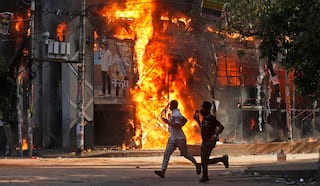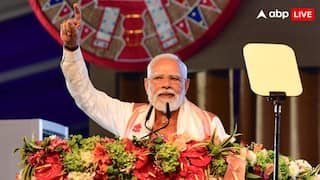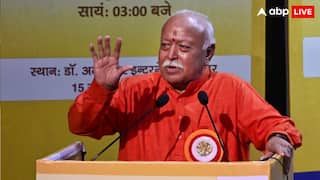Militant Funding Case: SIA Questions Hurriyat Leader Prof Gani Bhat For 8 Hours In Jammu
Bhat had been called in relation to the prior arrest of a former minister in a militant funding investigation. He detailed the cash transported into the Valley by several Hurriyat leaders.

The State Investigation Agency (SIA) questioned senior Hurriyat leader Professor Abdul Gani Bhat for nearly 8 hours on Saturday after summoning him to the JIC Jammu in a case involving militant and Hawala funding.
According to a top official reported by the news agency, Bhat was called in connection with a case of militant and Hawala funding in which former minister Jatendar Singh alias Babu Singh was previously arrested.
He claimed that Bhat was questioned for nearly eight hours at JIC Jammu after the agency summoned him today.
During questioning, the official added Bhat gave numerous details about the money collected from over the border by various Hurriyat leaders in the Valley.
ALSO READ: J&K: Two IEDs Detected And Defused In South Kashmir's Kulgam, Bomb Disposal Squad On Spot
Prof Bhat is the leader of the Jammu and Kashmir Muslim Conference and has previously led the Hurriyat Conference.
The All Parties Hurriyat Conference is an alliance of 26 political, social, and religious organisations that was created on March 9, 1993, as a united political front to raise Kashmiri separatism in the Kashmir conflict.
ALSO READ: J&K: 11 Jamaat-e-Islami Properties Sealed In SIA Crackdown In Anantnag
Bhat, who was born in the Botengo village of Sopore in North Kashmir, studied Persian, Economics, and Political Science at Sri Pratap College in Srinagar before continuing his studies in Persian and Law at Aligarh Muslim University.
Earlier in the day, as part of a crackdown on terror networks in Jammu and Kashmir, District Magistrate Anantnag notified and sealed at least eleven properties worth crores connected to Jamaat-e-Islami after the SIA presented a proposal to the court.
The action was intended to prevent finances from being available for separatist activities and to disrupt the ecology of anti-national elements and terror networks.






































